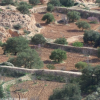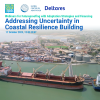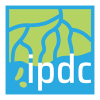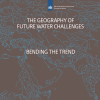Introduction
The Issue: Climate change delivers many of its impacts through water, intensifying the water cycle and exacerbating development related challenges.
The impacts of climate change include increasing or decreasing rainfall, flooding, sea level rise, melting glaciers, water scarcity, drought and increasing wildfires. Further, freshwater and soil quality are impacted negatively by salinity, contamination (e.g. raw sewage), erosion, and reduction in groundwater recharge. All these in turn drive indirect impacts such as drinking water, food and energy insecurity, as well as human displacement and migration.1
Water governance is often not fit to respond to the adaptation challenges, being fragmented and not sufficiently integrated into climate change planning.
National, provincial and municipal governments and water boards hold different responsibilities for putting in place good water governance. However, most often, there is little coordination and capacity among institutions. The current water crisis is very much a governance crisis - the current systems are not set up to manage water in a good water-centric way. Climate change exacerbates the existing challenges.
Investments in adapting governance strategies and water prioritization are needed
The Global Center on Adaptation’s 2019 “Adapt Now: A Global call for leadership on climate resilience” report outlines a way forward to manage water better. It calls upon government agencies to reallocate water to society’s highest priorities. The report recommends that governments invest in interconnected regional water systems, and in healthy watersheds to reverse and prevent water quality degradation and improve water safety and security. Regionals need to prioritize being “water smart” by wisely operating and maintaining water-delivery infrastructure and promoting user conservation with incentives and pricing. Given the large portion of freshwater used for food production, it is very important that the appropriate governmental departments support farmers in increasing water efficiency. 2
Principles on good water governance
Different recommendations for good water governance exist, including those supported by the Water Governance Initiative initiated by the Organization for Economic Co-operation and Development (OECD).3
The GCA’s Water Adaptation Community has asked two experts to work out what they think are the steps for accelerating mainstreaming water adaptation. They set out to understand the implementation barriers and tangible key success factors for accelerating mainstreaming of water adaptation, based on literature, interviews and case studies. They looked at urban, national and trans-boundary level for samples of successful water adaptation mainstreaming practices and insights into key success factors. One conclusion is that often current literature states “what” need to be done, but further direction on “how to” mainstream water adaptation is necessary to support governments, municipalities and communities in implementation.
Some findings to accelerate mainstreaming water adaptation include adaptive leadership and a change-oriented mindset, commitment to long-term vision/strategy, harmonized scenario models, exposure to good practices and improved dialogue. Stay tuned for the release of these reports in 2023.
To bring these insights further, the Water Adaptation Community, gathered interested members for a community dialogue about this topic. Targeting city and regional level climate and water adaptation practitioners from around the globe, but welcoming all interested in the topic to share their learnings and challenges. The recording of this dialogue the feature video.
One example of good change management and water governance adaptations highlighted by the experts for good implementation and practices was the RAMOTSWA project, with a Joint Strategic Action Plan (JSAP) for the Ramotswa Transboundary Aquifer Area (RTBAA). Additional cases of good practice and details about RTBAA's success will be released in the final reports in 2023.
- Water Facts: Water & Climate Change, UN - Water, https://www.unwater.org/water-facts/water-and-climate-change
- The Global Center on Adaptation’s 2019 “Adapt Now: A Global call for leadership on climate resilience" https://gca.org/wp-content/uploads/2019/09/GlobalCommission_Report_FINAL.pdf
- OECD, Toolkit for Water Policies and Governance Converging Towards the OECD Council Recommendation on Water, March 2021 https://www.oecd-ilibrary.org/environment/toolkit-for-water-policies-and-governance_ed1a7936-en














Trending Discussions
From around the site...
“Absolutely interested! I'll connect via email to discuss reviewing and enhancing the Economic Analysis of Climate...”
Adaptation-related events at COP28 (all available to follow/stream online)
“Please check out these adaptation-related events taking place at COP28 - all available online (some in person too if...”
Shining a light for biodiversity – four perspectives to the life that sustains us. Four hybrid sessions.
“30 November to 19 December 2023 - Four Sessions Introduction The SDC Cluster Green is happy to invite you to the...”